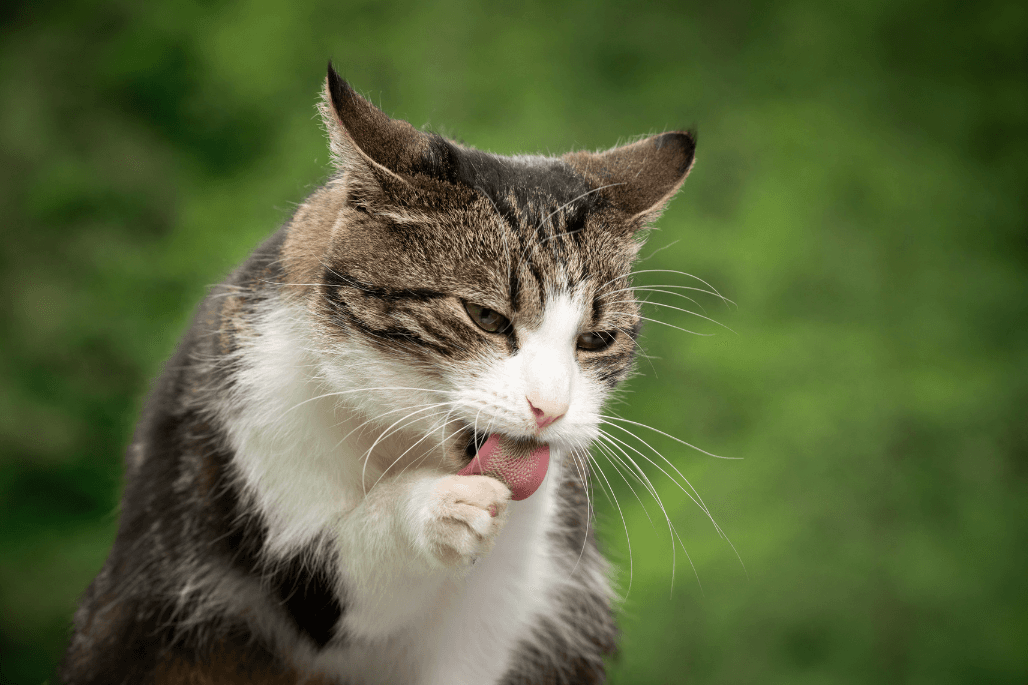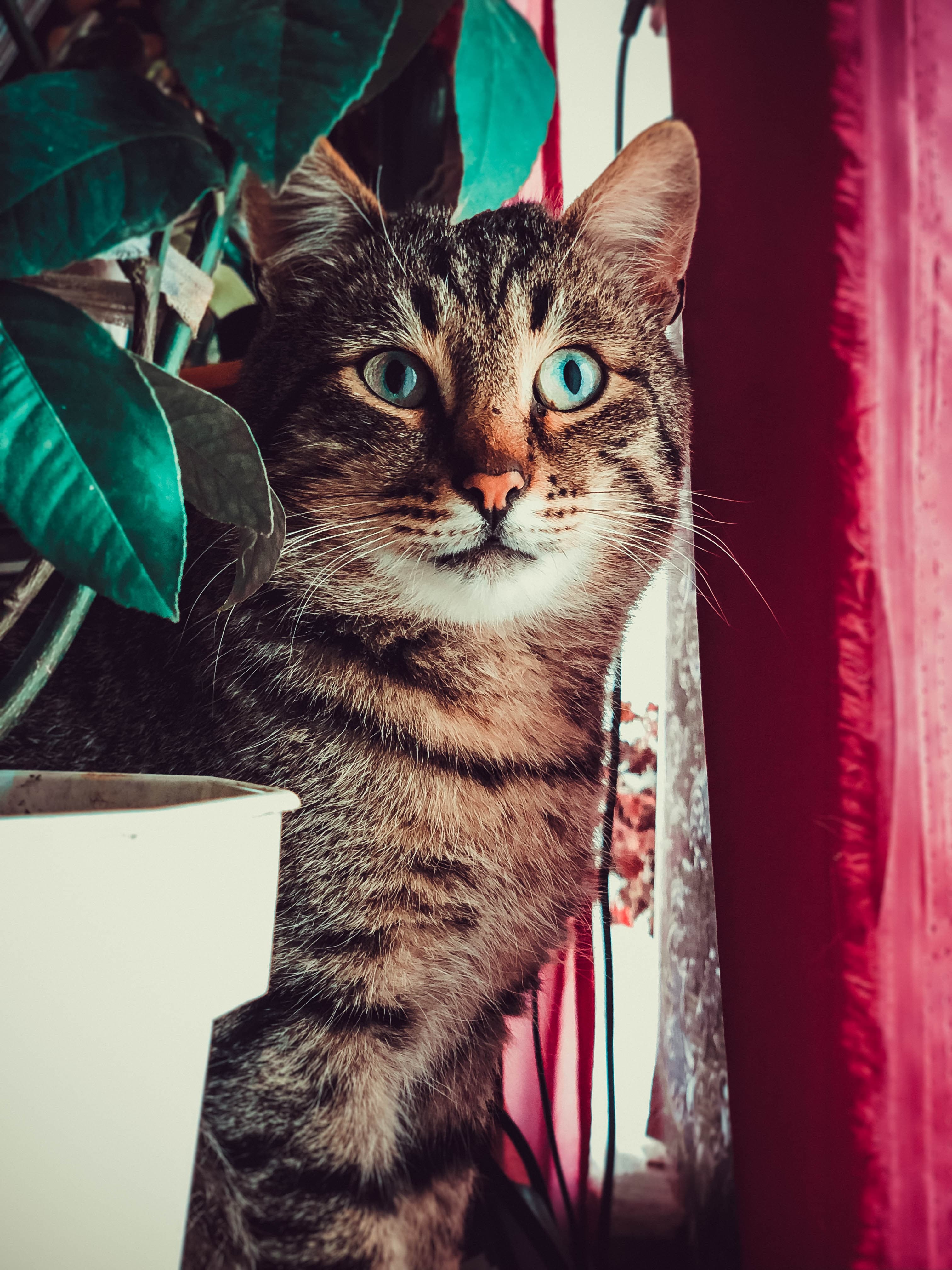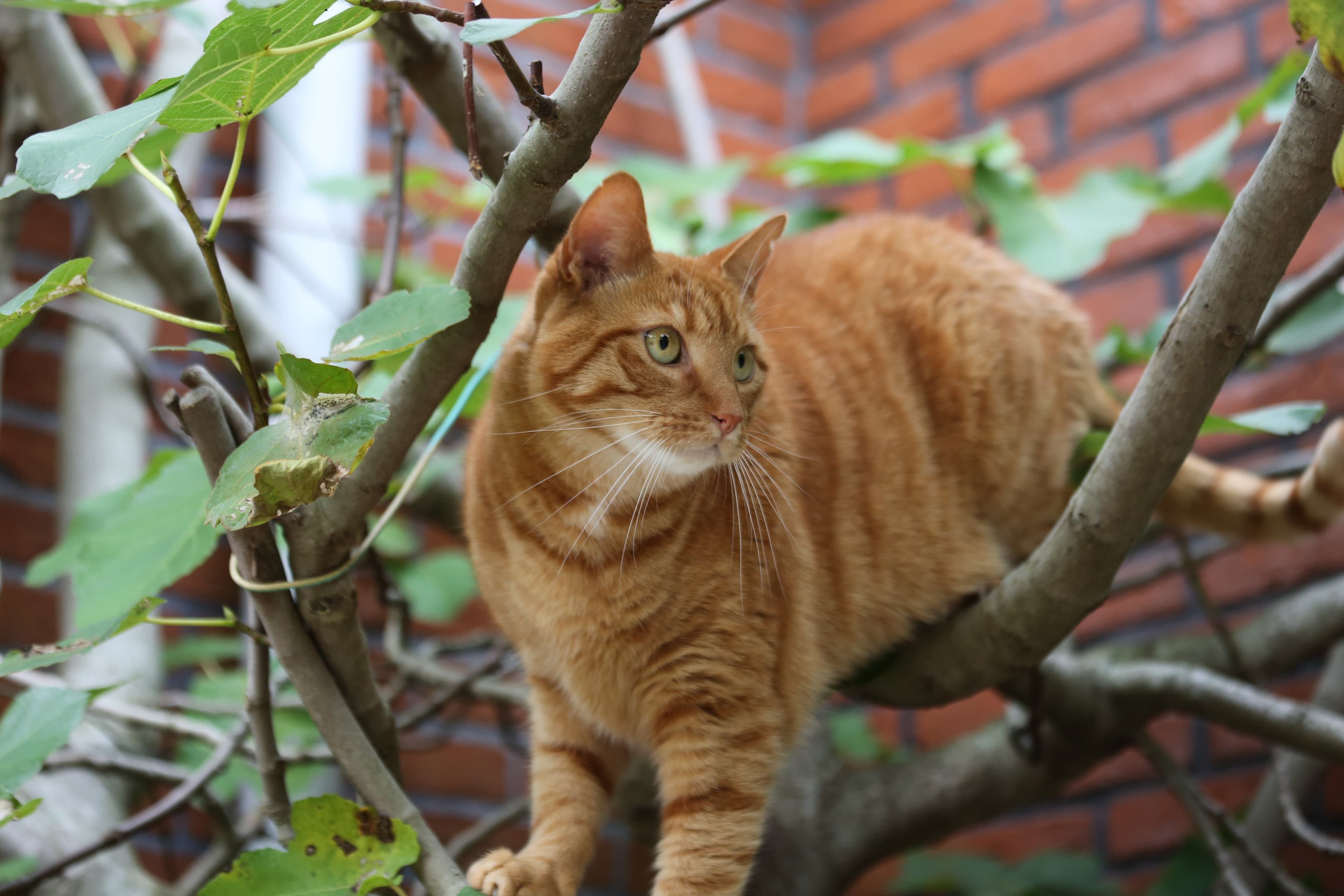How to spot allergies in your cat
Cats can develop allergies just like dogs or humans. The most common types are airborne allergies and food allergies. It’s not always straightforward to pinpoint the exact cause, so we’re here to help you understand what an allergy might look like in your cat.
What is an allergy?
An allergy occurs when the body’s immune system overreacts to substances in its environment, producing antibodies. As mentioned, cats most commonly suffer from airborne or food allergies, but contact allergies can also occur. Identifying the specific trigger can be challenging.
Airborne allergies are a lifelong condition requiring ongoing, individualised treatment to keep your cat comfortable. Food allergies, the other common type, can often be managed, and your cat may become completely symptom-free if the trigger is successfully identified and removed.
Symptoms of allergies in cats
Excessive licking and grooming are the most common signs. Allergies often cause itchy, inflamed skin. Your cat might lick their fur off their stomach or develop significant sores around their neck and throat.
Because itching can have many other causes, such as parasites or skin infections, your vet will first rule these out before investigating allergies. Your cat may then undergo allergy testing, either a skin prick test or a blood test. In addition to these, an elimination diet is used to identify food allergies. This often involves a specially formulated hydrolysed food, where proteins are broken down so the immune system can't react to them. While you can prepare an elimination diet at home, it requires detailed knowledge to be effective.
The elimination diet period is designed to see if skin lesions and any ear infections heal. To confirm a food allergy, the original diet is then reintroduced. Cats typically show a reaction to foods they can't tolerate within a few days to two weeks.
Treating allergies in cats
Treatment is always tailored to the individual cat and depends on the severity of itching, other symptoms, and your capabilities as a pet owner. Firstly, try to avoid known triggers, especially with food allergies. If possible, make changes to the cat's environment to reduce exposure to allergens. Cortisone or other allergy medications may be prescribed if needed, and sometimes topical treatments are sufficient.
Cats with allergies often have a compromised skin barrier. Your vet may prescribe fatty acid supplements to help restore it.
Veterinary care
If you suspect your cat's itching and skin irritation are due to allergies, it’s important to seek veterinary advice promptly. Diagnosing the cause can take time, so getting help early is key. You can always contact a digital vet for an initial consultation to discuss the next steps. As a Lassie insurance customer, you have unlimited calls to our digital vet service.






